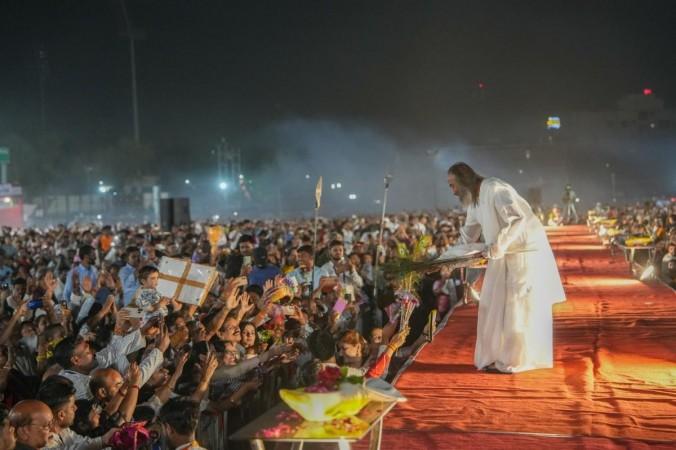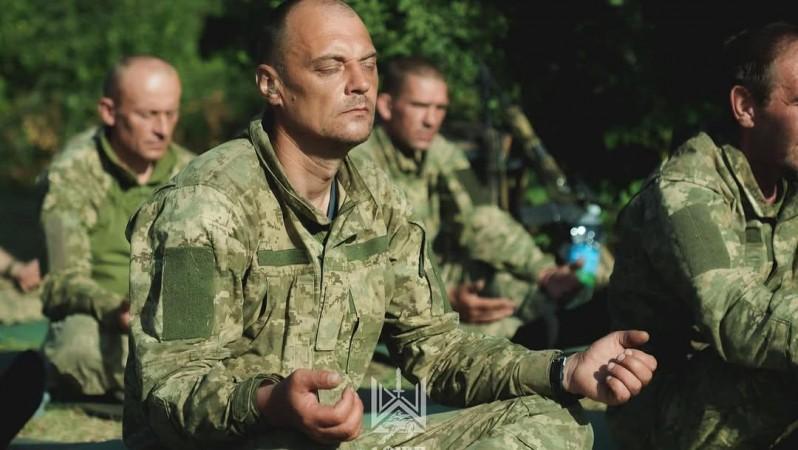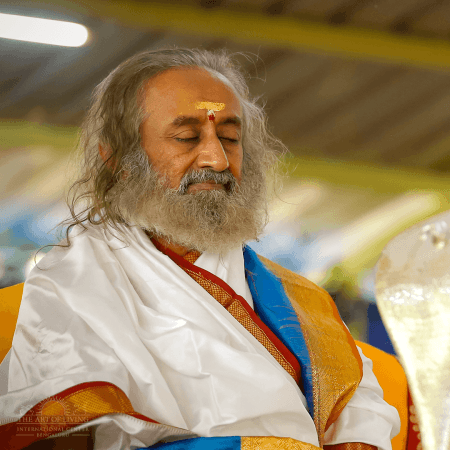
On the International Day of Peace, the work of Gurudev Sri Sri Ravi Shankar, global humanitarian and founder of the Art of Living Foundation, offers a striking reminder that even the hardest conflicts can bend towards peace when adversaries are given a chance to heal within.
For over four decades, Gurudev has engaged with some of the world's most intractable conflicts—from Colombia's guerrilla war to caste violence in Bihar—not with weapons or political power, but through a universal approach rooted in stress relief, meditation, and human connection. His philosophy is simple yet profound: "Inside every culprit is a victim crying for help."
Gurudev's interventions have reached people across 180 countries, from former militants in Kashmir who found relief from guilt to prisoners overcoming trauma to war victims in Ukraine and Kosovo seeking mental calm. His signature technique, Sudarshan Kriya, combined with guided meditation and dialogue, has helped over 800 million people experience inner peace.

In South Africa's Ivory Coast, warring gangs laid down arms and vowed to rebuild homes. In India's Northeast and Jharkhand, insurgents abandoned violence and chose instead to run schools for underprivileged children. Across 800,000 prisons globally, inmates struggling with anger and hopelessness found meaning and calm through these practices.
Historic peace in Colombia: Breaking decades of distrust
Perhaps one of Gurudev's most celebrated interventions came in Colombia, where a bloody civil war had stretched for more than half a century, claiming over 200,000 lives. By 2015, peace talks between the government and the Revolutionary Armed Forces of Colombia (FARC) were deadlocked, weighed down by decades of suspicion.
At the invitation of then-President Juan Manuel Santos, Gurudev engaged both sides at a critical juncture. His neutral stance, human warmth, and insistence on non-violence created an unexpected opening. During three days of dialogue in Havana, he introduced both camps to breathing and meditation practices. "For the first time, men who walked into the room with suspicion began to relax and even look each other in the eye," observers noted.
The effect was immediate. FARC soon declared a unilateral ceasefire, a turning point that preserved the fragile talks and paved the way for the 2016 peace agreement in Cartagena. President Santos, who later won the Nobel Peace Prize, hailed Gurudev and the Art of Living as "heroes of peace," adding, "Your spiritual guidance has been a great support and friend in this process."
Equally powerful were the reconciliation meetings facilitated later, where FARC leaders publicly sought forgiveness from victims' families. "Today, with sincere humility, we would like to recognize our responsibility and ask for forgiveness," one leader said. Fabiola Perdomo, whose husband was killed by FARC, responded: "Forgiveness has made me free, cleansed me, and prepared me to build a new life."
Bihar's caste wars: From bloodshed to brotherhood

Back in India, Gurudev played a pivotal role in bringing peace to Bihar, once scarred by caste-based violence and Naxalite insurgency. His approach was intimate: emissaries from the Art of Living Foundation lived among villagers, ate with them, and introduced calming practices that soothed anger and fear.
Over time, nearly 700 extremists surrendered their weapons, many directly to Gurudev. In Narhi, a community feast brought sworn enemies to the same table. A Maoist leader, R. Singh, openly sought Gurudev's guidance. His eventual surrender helped transform the volatile Bihar–Nepal border into a peace zone — a development welcomed by the Indian government.
Spirit of peacebuilding
From Colombia to Bihar, Gurudev's efforts underline a core principle: outer peace cannot exist without inner calm. His interventions have been less about political settlements and more about enabling human beings to see each other beyond anger and fear.
"Spirituality brings people together, realizes the underlying unity, and celebrates diversity," Gurudev often says. His work shows how timeless tools like meditation and dialogue can soften hardened positions, giving peace a chance even where violence once seemed inevitable.
On this International Day of Peace, his story is a reminder that peacebuilding is not only the task of diplomats and soldiers—sometimes, it begins with something as simple, and as profound, as a shared breath.

















